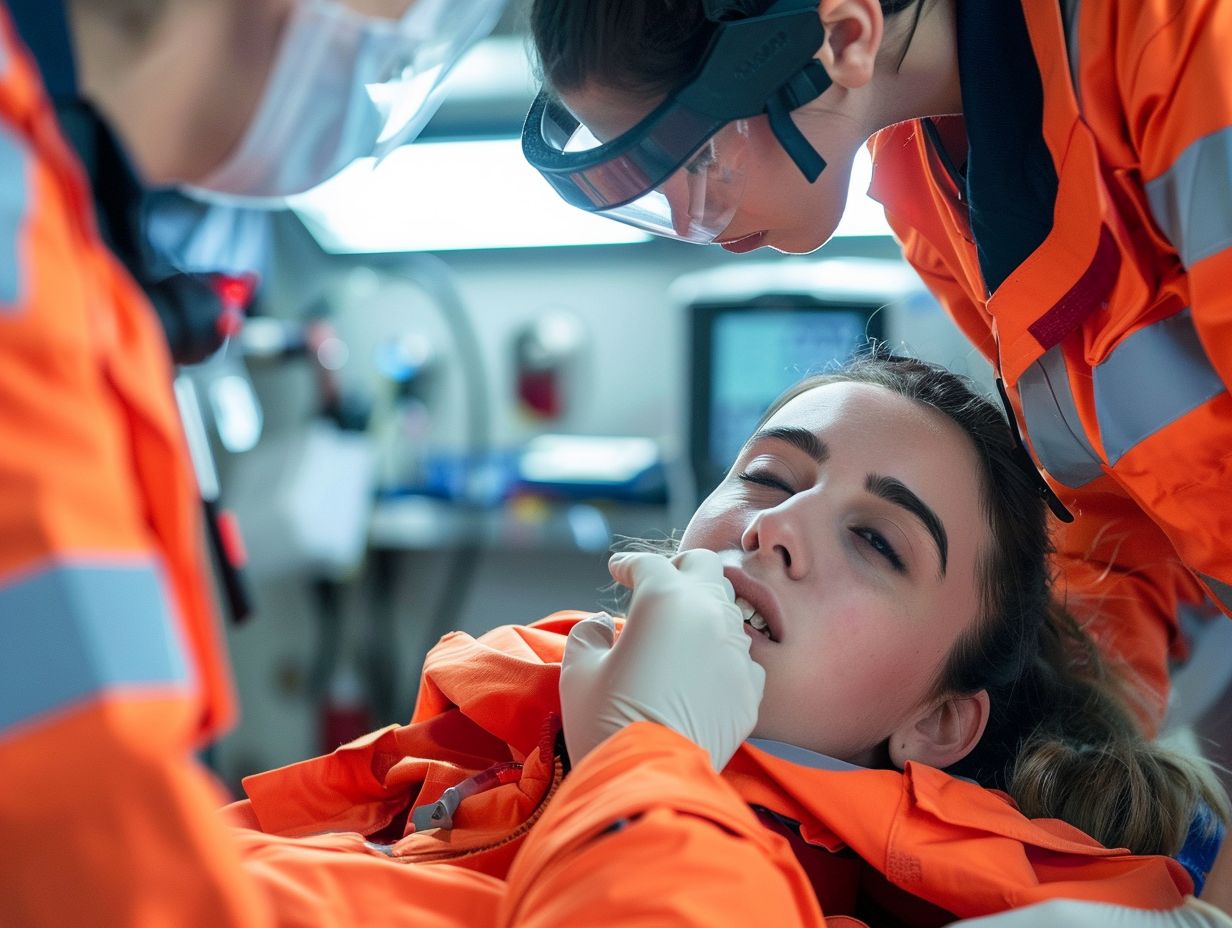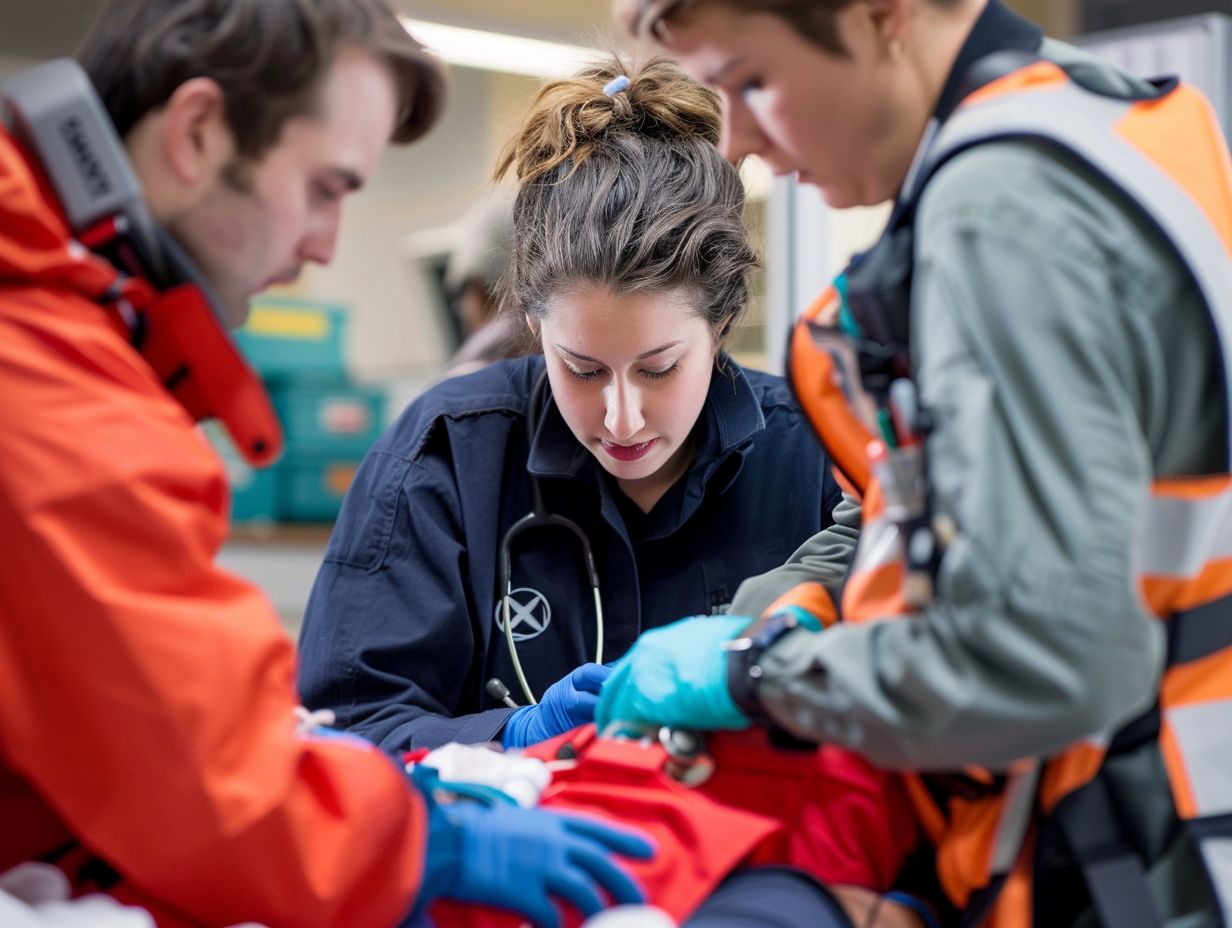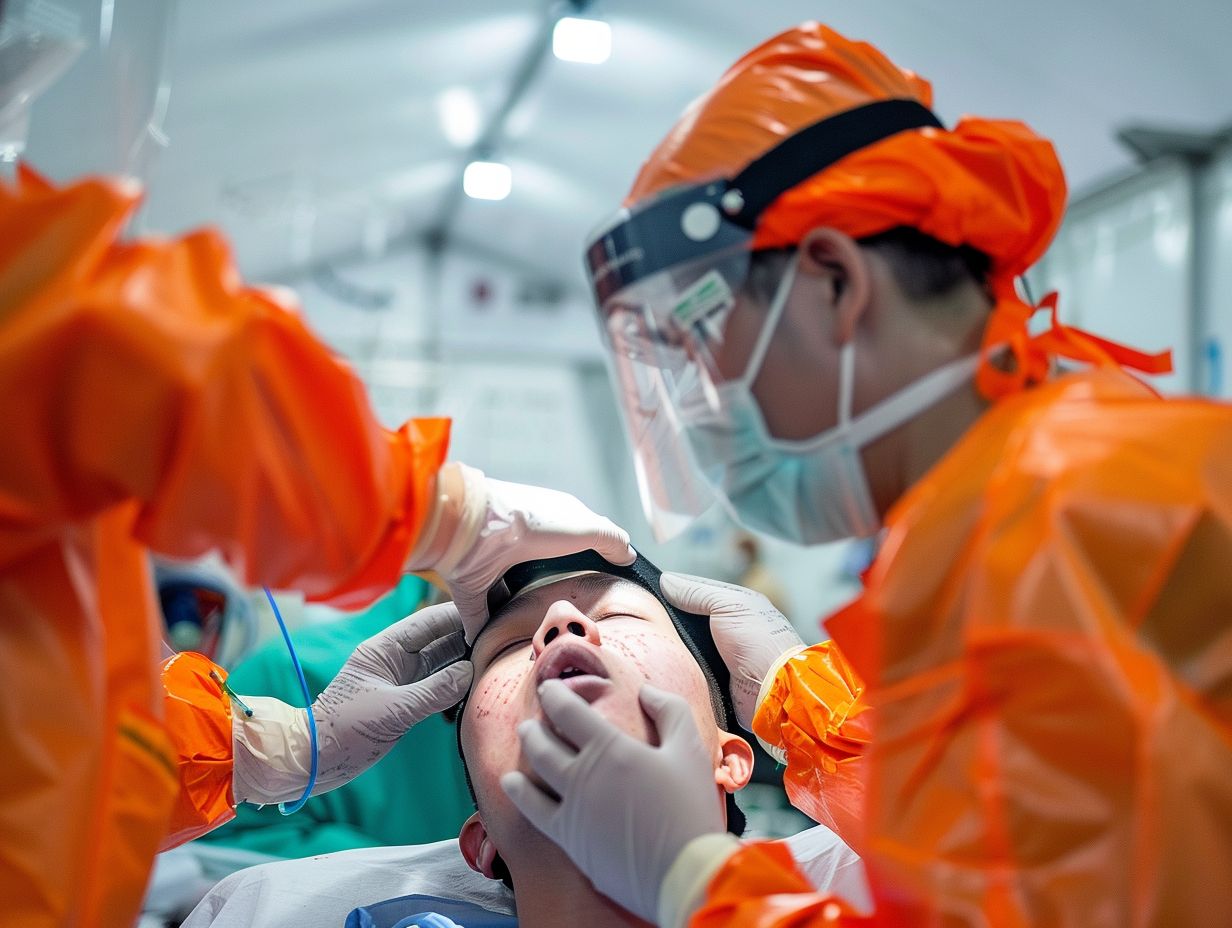Emergencies can happen at any time, and it’s important for you to be prepared.
You need to understand emergency healthcare services so you know when to seek immediate care, what to expect at the emergency room, the different types of services available, and how much it may cost.
In this article, we will explore the definition and purpose of emergency healthcare services, when you should seek help, what to expect during your visit, the various levels of care and specialties offered, and how billing and insurance coverage work in these situations.
So, let’s dive in together and learn what you need to know about emergency healthcare services.
Understanding Emergency Healthcare Services

Emergency Healthcare Services include a bunch of medical treatments meant to give you immediate and critical care when you’re in urgent need. They make sure you get the medical help you need quickly in all sorts of emergencies.
Definition and Purpose
Emergency Healthcare Services are there to give you quick medical treatment and urgent care when you’re dealing with serious medical conditions or injuries. These services are super important for saving lives and lessening the impact of medical emergencies on you and your community. Healthcare providers and facilities that offer emergency care have all the tools, meds, and know-how needed to stabilize you when you’re in a critical situation.
The main goal of emergency healthcare services is to quickly figure out what’s wrong, make a diagnosis, and treat sudden illnesses, injuries, or other serious medical issues. By acting fast in emergencies, healthcare professionals can stop things from getting worse, lower the chances of people dying, and make sure that anyone who needs help gets it right away.
When to Seek Emergency Healthcare Services
You need to know when to seek Emergency Healthcare Services. It’s crucial for making sure you get the right medical help quickly when you’re facing a situation that needs urgent attention.
Symptoms and Situations Requiring Immediate Care
Recognize the symptoms and situations that need immediate care – it could be a lifesaver in medical emergencies. When you notice things like chest pain, sudden weakness, slurred speech, or trouble breathing, it could mean a heart attack or stroke, both serious conditions that need urgent help. If you experience these symptoms, don’t waste time – call emergency medical services or head to the nearest ER right away. Healthcare pros are ready to assess, stabilize, and provide critical care to folks facing these urgent health issues, giving quick medical attention and necessary treatments to better the outcomes.
What to Expect at the Emergency Room

When you arrive at the emergency room, knowing what to expect can ease some of the stress and uncertainty that comes with seeking emergency medical treatment.
Process and Procedures
In the emergency room, the process kicks off with triage, where medical staff evaluate the severity of your condition to figure out the order for medical treatment.
Once they’ve checked out your condition, the next stop in the emergency room journey is registration. You’ll need to give your personal and insurance details at this point. This helps in setting up a healthcare provider database, keeping track of patient records, and making the billing process smoother.
After registration, it’s onto the diagnosis phase. That’s where healthcare pros will run tests and do examinations to get to the bottom of what’s causing your symptoms. Once they’ve figured that out, the healthcare team will work out a treatment plan following emergency care guidelines to tackle your medical needs head-on.
Types of Emergency Healthcare Services
Incorporating several levels of care and specialties, Emergency Healthcare Services are designed to cater to your specific healthcare needs and offer the right medical help when you’re facing an emergency.
Different Levels of Care and Specialties
In emergency healthcare services, different levels of care and specialties make sure that you get the right medical attention for your specific needs.
Regarding emergency situations, basic life support (BLS) is usually the first level of care you’ll receive. It’s all about stabilizing you until you can get to a medical facility for further treatment. But if things get more intense, that’s where advanced life support (ALS) comes in. This level involves more complicated interventions, like giving medications and handling advanced airway management.
And let’s not forget about specialized services. Whether it’s pediatric care or trauma treatment, these services are tailored to cater to specific patient groups with unique medical requirements.
You’ll find different healthcare facilities, like hospitals, urgent care centers, and specialized trauma centers, all playing key roles in getting you timely and effective emergency medical care.
Availability of healthcare services and coordination among emergency response teams are super important in making sure you get seamless and efficient care in those critical moments.
Costs and Insurance Coverage

You need to understand the costs and insurance coverage linked to Emergency Healthcare Services. This is crucial for you to navigate the healthcare system smoothly and handle the financial side of your medical treatment during emergencies.
Understanding Billing and Payment Options
When you seek emergency care, you want to have a handle on billing and payment options, so you’re not left feeling lost in the healthcare maze.
The billing process kicks off with the hospital collecting your insurance info when you arrive. They’ll then send a bill to your insurance company, outlining what services you got and how much they cost. Depending on your coverage, things like hospital stays, tests, and treatments might be covered either partially or fully.
Make sure to check out your insurance policy to see what’s included in your plan. If there are expenses not covered, don’t stress. You’ve got options like payment plans, quick payment discounts, or financial aid programs tailored to your financial situation.
Frequently Asked Questions
What services are included in Emergency Healthcare Services?
Emergency Healthcare Services typically include immediate care for life-threatening medical conditions such as heart attacks, strokes, and severe injuries. This may also include ambulance transportation, emergency room treatment, and access to specialized medical equipment.
Who can access Emergency Healthcare Services?

Anyone can access Emergency Healthcare Services in a medical emergency. There is no requirement for insurance or pre-authorization. It is important to call 911 or seek help from the nearest emergency room as soon as possible.
Do I have to pay for Emergency Healthcare Services?
Emergency Healthcare Services are typically covered by health insurance. However, if you do not have insurance or your insurance plan does not cover emergency care, you may be responsible for paying out of pocket. It is best to check with your insurance provider for specific coverage details.
What should I do if I am not sure if my situation is an emergency?
If you are unsure if your situation is a medical emergency, it is always better to err on the side of caution and seek help. You can call 911 or go to the nearest emergency room for an evaluation. It is better to be safe than sorry when it comes to your health.
What information should I have ready when seeking Emergency Healthcare Services?
When seeking Emergency Healthcare Services, it is helpful to have your personal identification, medical history, and insurance information readily available. This will help medical professionals provide you with the best care possible.
Can I choose which hospital I go to in an emergency?
In most cases, emergency responders will take you to the nearest hospital with Emergency Healthcare Services. However, if you have a specific hospital or doctor that you prefer, you can request to be taken there. Keep in mind that time is of the essence in a medical emergency, so it is best to trust the judgement of the emergency responders.